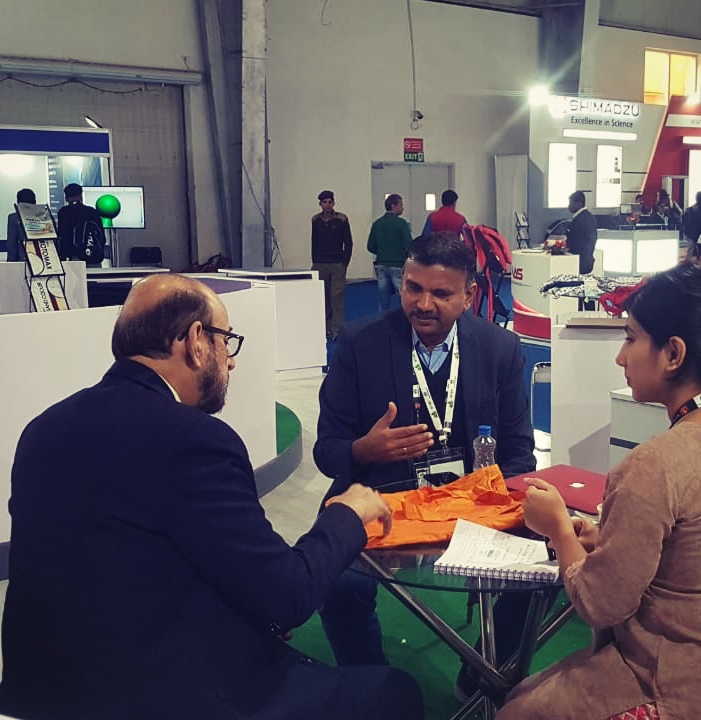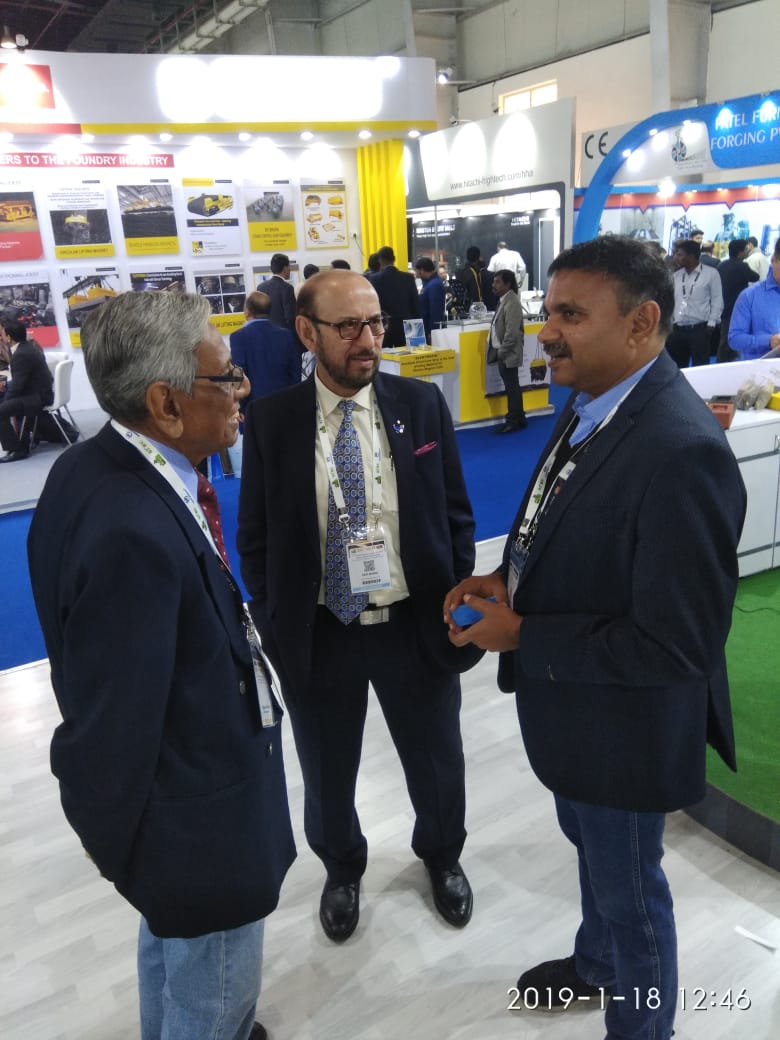The article below summaries our learnings, industry feedback and also the areas that are yet to be filled in. Objective of going to the exhibition: to engage with industries for skill development in Industries. At every industry stage, whether it is the inception stage, growth stage or forward moving stage, industry is seeking human capital for efficient production. This year during IFEX 2019 held between 18th – 20th of January at Noida, we presented a model for human capital building of the workforce in the Foundry Industry.
 The model snapshot
The model snapshot
The Industry Input: Steps taken by the Industries
- The industry structure: Step 0 of any skill development programme requires an in-depth understanding of the objective, learners and the learning outcome. For an industrial skill development programme, this begins by understanding the industry objective for skilling, the industrial learners who have to be skilled or up-skilled and the role each of them will be playing or are currently playing. Dr. Devaraaj from CRI Pumps took this step pro-actively and designed the entire structure of the Foundry industry with respect to the skills, roles, competencies and the value chain.
- Need Assessment: Major foundry industries stepped forward to define the specific needs of their industry
- Plug-in modules were suggested for integrating in the long-term vocational skilling of the technicians
- Plug-in modules were suggested for upgrading the existing workforce
The opportunities: The advantages of the human capital building expressed by industry
- Technological advancement: With the onset of Industry Revolution 4.0, advanced technology and machineries have come into play. These play a direct role in increasing the productivity, efficiency and thus, the sales of the industry. However, the most important role is played by the workforce operating, maintaining and servicing these machineries. Training and skilling these people forms the crux of quality production.
- Industry growth: By engaging the skilled workforce, there is a direct impact on reduction of errors which improves the capability of the delivery team in the organisation. With strong foundation, the growth is sustainable and healthy.
- Workforce retention: People today are much more empowered than they used to be. Surprisingly, many of the industries have experienced that most of the trained employees chose to stay back due to the organisation’s investment in their growth. Moreover, it attracted fresh talented individuals who wanted to be part of the ecosystem that promotes their development. This is essential for MSMEs to attract talented, skilled youth who otherwise are more inclined to join a higher paying multi-national company.
 The Challenges: The bottlenecks expressed by industry
The Challenges: The bottlenecks expressed by industry
- The alignment of the team within the industry to support the skilled workforce: A crucial viewpoint expressed was that when a skilled workforce integrates in the routine working of the industry, the ecosystem does not support the application of skilled methods learnt because of the status quo. The skilled individual then gradually just falls back into the old system of working due to peer pressure or unavailability of floor to practise learnt methods or because of supervisors who are higher in terms of hierarchy but are semi-skilled themselves. A need for upgrading the entire pyramid of the organisation came into light.
- The interest of the trainee: Even after engaging in human capital building, many of the trainees do not put in the effort to seriously learn from the skill development programme due to lack of interest. An alternate viewpoint of incentivising the skilling and creating a pool of skilled workforce is also something that industry can brainstorm on.
- Industry’s is not equipped to train: During the interaction, an important learning was that industries struggled when they did not have a knowledge partner to continue the skill development initiative since the process gets diluted due to work pressure, targets, lack of structure and more.
 Two sides of the narratives encountered from the Industry –
Two sides of the narratives encountered from the Industry –
| Perceptive 1 | Perceptive 2 | ||
|
|
While many of the industries have stepped forward and already taken steps to implement the skill development initiatives for their industry and moved forward to growth stage, a larger portion of the narrative is still “the person leaves when we train”.
Which side of the narrative are you on?
Guest author: Nihar Agarwal, ACE Foundation, she can be reached at nihar@acefound.org





Best content which is worth reading it. Thanks